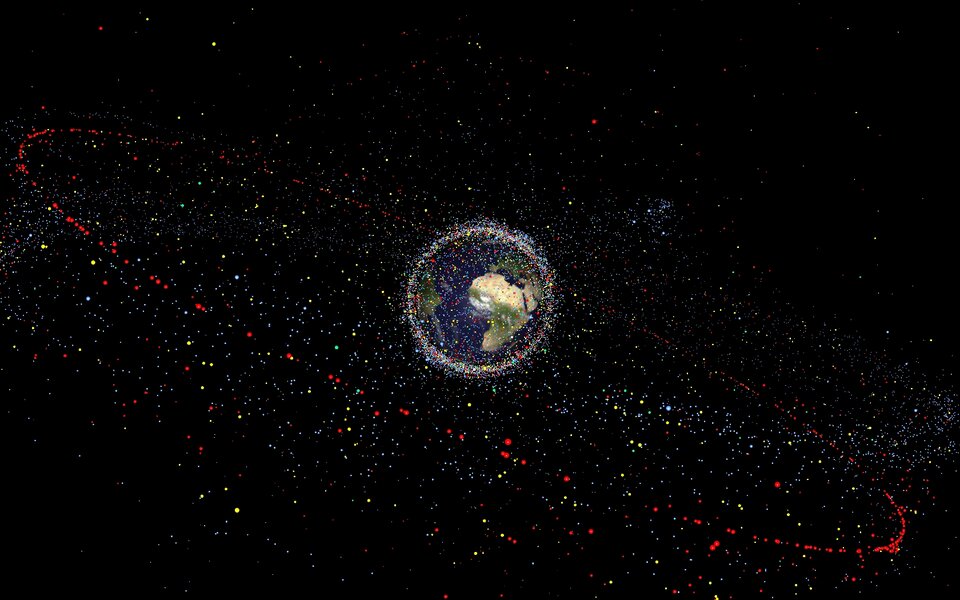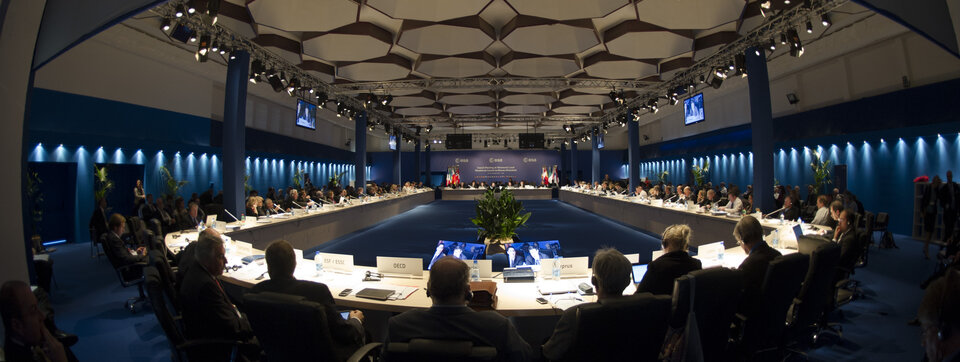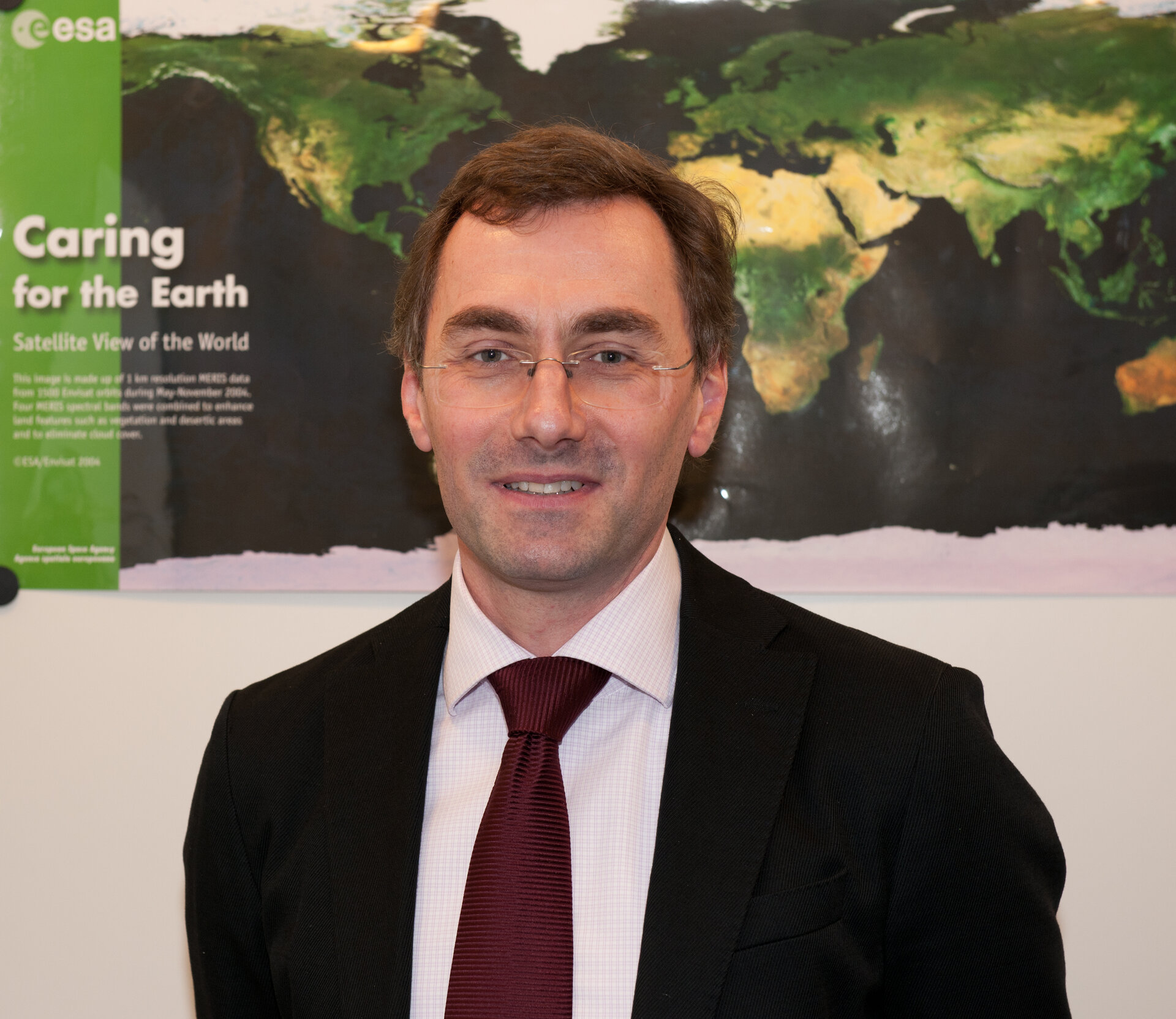Raising awareness and winning the argument: Kai-Uwe Schrogl interview
Kai-Uwe Schrogl might be regarded as a leading “godfather” of Clean Space. As the Head of the ESA Policies Department he was present at the birth of the initiative, having previously tackled the policy and legal issues related to the protection of the orbital environment as Director of the European Space Policy Institute from 2007-2011.
In April this year Prof. Dr. Schrogl was elected Chairman of the Legal Subcommittee of the United Nations Committee on the Peaceful Uses of Outer Space, from where helping to develop international regulations for space debris mitigation, which he describes as also ‘a personal commitment of mine’.
What role are you playing in the Clean Space effort?
Until recently I was responsible for Clean Space, which was part of the Policies Department I oversaw. It was something I really enjoyed working on because I was convinced about the strategic support of the issue. Now, as Head of the Relations with Member States Department, I am not directly responsible but I still try to support it in various ways. Through my contacts with ESA Member States, I try to foster their interest and support for the initiative.
As an individual I promote the issue and example of Clean Space in international fora where I am engaged, including the International Institute of Space Law. In addition, and possibly most prominently, my oversight of ESA’s Coordination Office of Sustainable Development provides numerous links to Clean Space – which is an integral part of the overall strategy of the Agency in this field.

In promoting Clean Space, what challenges do you come up against?
The key challenges are firstly to raise awareness, because there is still not enough knowledge about the effects of our activities on the environment. The second key challenge is to convince the Member States in investing in concrete activities and to provide resources on the European and national levels. I could even add a third challenge, which is to convince all stakeholders that reliable and reasonable regulations are necessary to safeguard the utilisation of space and to protect of our environment.
How did you first become involved?
The decision was taken by management to locate Clean Space within the Policies Department which I was heading. We when set up an Office headed by Luisa Innocenti, who continues to lead the initiative now that it has been transferred to ESA’s Directorate of Technical and Quality Management.
What is your opinion of the overall Clean Space initiative?
Clean Space is a necessary effort, and one of strategic importance for our Agency, as well as the development of space activities on a global scale. Up until now Clean Space has been driven by the personal engagement of individuals across various organisational units, but now the time has come to continue the initiative as a full-fledge programme providing the necessary budgetary substance for all four of its branches, up to and including space debris removal.
How do you summarise Clean Space for your non-technical friends and family?
The beauty of Clean Space is that it has a denomination which everybody understands easily: being clean is easily apparent, and has direct positive connotations. If you however go into technical details it can be more difficult to summarise in concrete terms, but the basic aim of mitigating and reducing environmental impacts is something that is immediately welcomed in a positive way by everyone you talk to. It is also good to mention that this initiative distinguishes Europe from many other countries or regions which are not so active in this field.
Through my responsibility for education in the Agency, I also get in contact with children, students and educators and it is surprising how huge the awareness is of space debris mitigation and environmental protection of outer space at even very young ages. This shows the next generation will put an even stronger focus on the responsible behaviour on Earth and space, and we should certainly already now be working harder in passing on a space environment to them where space activities can be conducted without the threat of being hindered by space debris. The movieGravityhas certainly added to this already broad consciousness.

How do you see Clean Space evolving in future?
Today Clean Space is not only supported by the conviction and engagement of those working on it within the Agency. In addition, we have already achieved a better understanding and a stronger support of the initiative’s visions and goals among the entire space community across Europe, which includes national agencies and academia as well as industry.
We will now have to translate that into a convincing programme proposal which should be presented at ESA’s Ministerial Council, following the one taking place this December. Through my contacts and discussions I would expect that ESA Member States are ready to engage with Clean Space and lift it to a new level of commitment.
We have convincingly argued that engaging in technology development for Clean Space is not only a political imperative but a decision that can and will provide competitive advantages for European industry. Clean Space has turned out to be a very promising example of how European leadership can provide benefits across various fields including innovation, technology development, strengthening industry and safeguarding the environment as well as setting the international political agenda.




